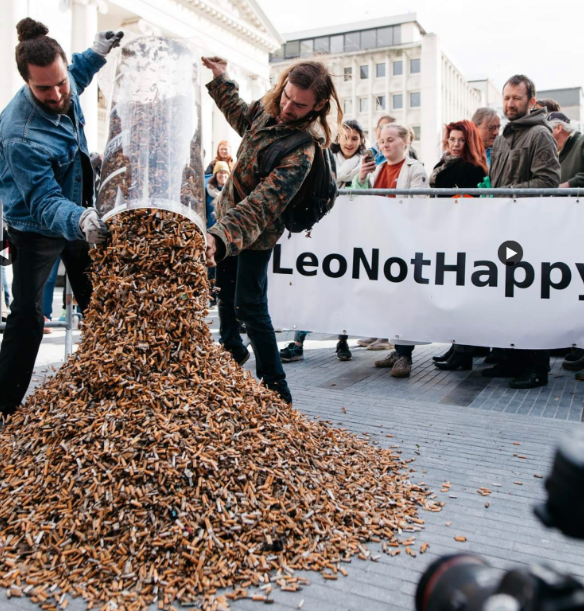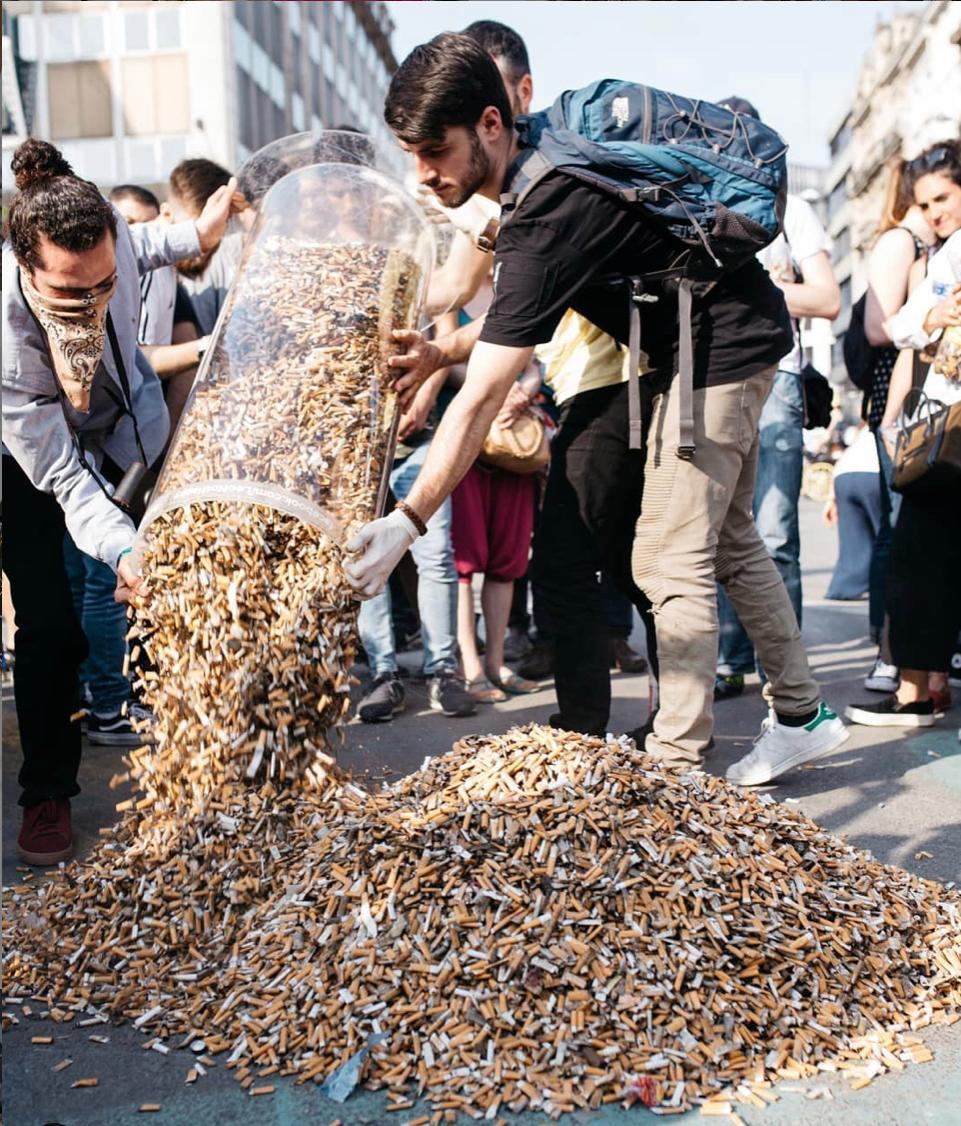
270.000 cigarette butts collected by 240 volunteers in 3 hours in Brussels
By Fino MenezesOct. 4 2019, Updated 9:43 a.m. ET
NEW STUDY FINDS CIGARETTE FILTERS TO BE THE WORST CONTAMINANT IN OUR OCEANS
Plastic straws have been the target recently of corporations, retailers, and even states and cities. Everyone from top hotel chains and fast food giants are introducing their own plastic straw bans. However, according to a new report, the source of this collective energy may be misplaced.
The report suggests that the biggest man-made contaminant of the world’s oceans is not plastic straws, or even plastic bags, but cigarette filters, or butts.
Brussels, April 22, 203 volunteers, 120,000 cigarette butts collected. Throw your cigarette butts on the floor, at the foot of the tree or in the gutter, a gesture that seems so innocuous and yet… every second, 137,000 cigarette butts are thrown on the ground in the world.
The butt contains plastic, 4000 chemical substances, is not biodegradable and can pollute 500 litres of water. It is the first waste that we find in our environment. Smokers; you can make a change by getting a pocket ashtray or throwing your butt in the trashcan. The Earth is not an ashtray.
CIGARETTE FILTERS—NOT PLASTIC STRAWS—THE WORST CONTAMINANT OF OCEANS
In recent months, plastic straws have been the target of corporations, retailers, and even states and cities.
Big chains from Marriott and Hyatt to Starbucks and McDonald’s are introducing their own plastic straw bans.
But according to a new report from NBC News, the source of this collective energy may be misplaced. The report suggests that the biggest man-made contaminant of the world’s oceans is not plastic straws, or even plastic bags, but cigarette butts.
Cigarette filters are not only omnipresent, but also their disposal has largely been unregulated, meaning a virtually limitless number enter the oceans. But a number of individuals and organisations are fighting to change that.
One campaign, the Cigarette Butt Pollution Project, hopes to ban cigarette filters, which are made from cellulose acetate, a type of plastic that can take over a decade to decompose.
Of the 5.6 trillion cigarettes that are made with these filters each year, as many as two-thirds are dumped irresponsibly.
The campaign’s founder and public health professor Thomas Novotny explained to NBC that filters provide no health benefits, but rather serve as a marketing tool, while making it “easier for people to smoke.”

8 May: 270.000 cigarette butts collected by 240 volunteers in 3 hours in Brussels Every second 137,000 cigarette butts are thrown on the street in the world which is 4.3 billion per year.

Belgium is known for its fries and mayonnaise... and, it would seem, cigarette ends!
IS IT ANY WONDER THAT CIGARETTE BUTTS HAVE DRAWN ATTENTION?
The vast majority of the 5.6 trillion cigarettes manufactured worldwide each year come with filters made of cellulose acetate, a form of plastic that can take a decade or more to decompose. As many as two-thirds of those filters are dumped irresponsibly each year, according to Novotny, who founded the Cigarette Butt Pollution Project.
The Ocean Conservancy has sponsored a beach cleanup every year since 1986.
People sometimes dump that trash directly on to beaches but, more often, it washes into the oceans from countless storm drains, streams and rivers around the world. The waste often disintegrates into micro-plastics easily consumed by wildlife.
Researchers have found the detritus in some 70% of seabirds and 30% of sea turtles.
Discarded filters usually contain synthetic fibres and hundreds, if not thousands of chemicals used to treat tobacco.
“More research is needed to determine exactly what happens to all of that,” Nick Mallos, director of the Trash Free Seas campaign for the Ocean Conservancy told NBC News. “The final question is what impact these micro-plastics and other waste have on human health.”

THE MOST LITTERED ITEM IN THE WORLD The No.1 man-made contaminant in the world’s oceans has mostly avoided regulation.
